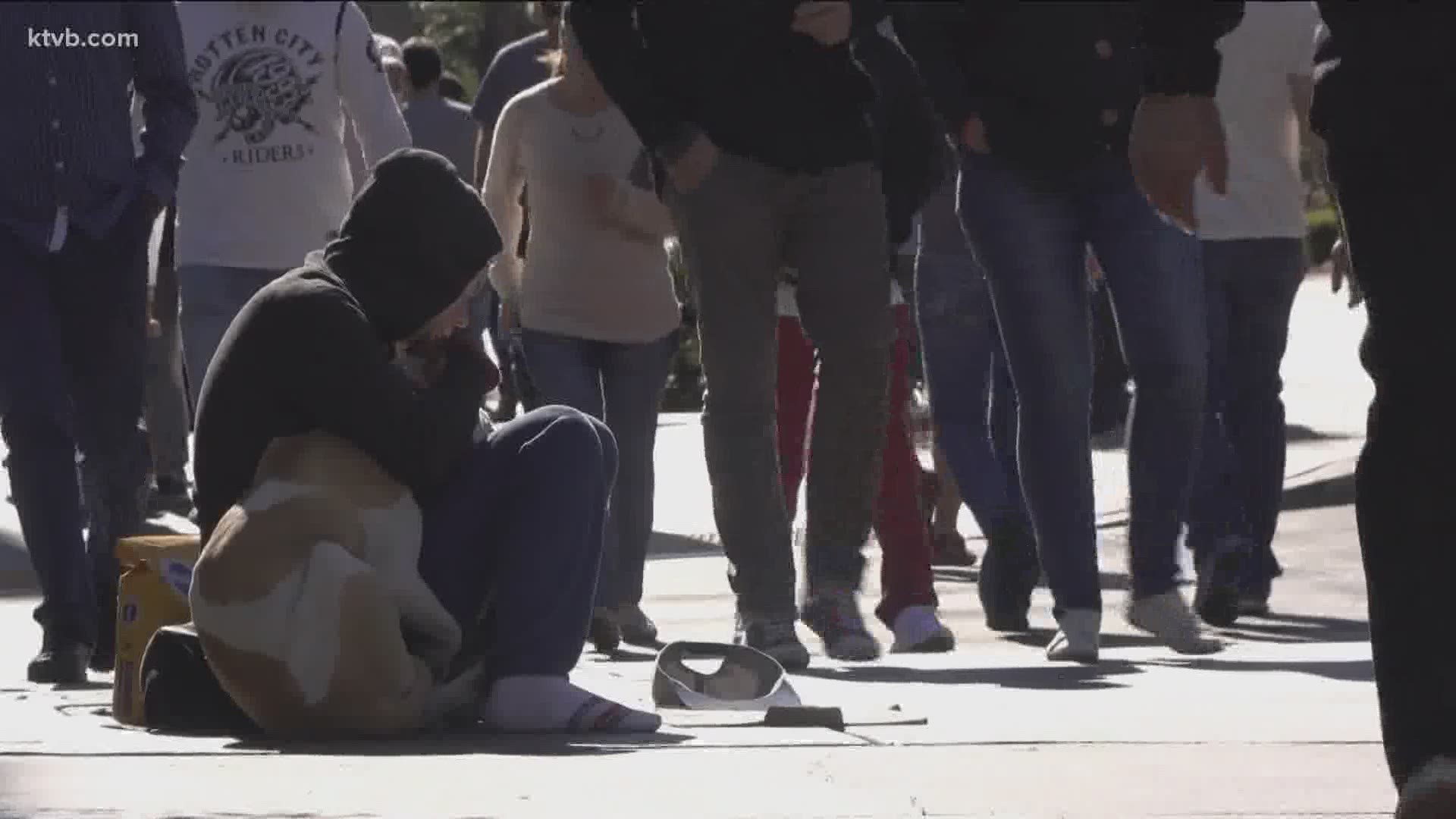BOISE, Idaho — Almost half of those who are homeless live with mental illness.
In some cases, their illness may be a result of their homelessness. Homelessness can also be a result of their illness.
Optum Idaho’s Dr. Dennis Woody said keeping exact counts of the number of homeless people in Idaho can be difficult.
“At any given time, there are about 2,000-plus individuals here in Idaho who are technically identified as homeless. The exact numbers are really difficult to nail down because reporting criteria and accessibility to these folks is not good," he said. "45% of those folks, in general, do in fact have a mental illness. We know that 20% to 25% of the people who are homeless here in Idaho have what’s technically known as a serious and persistent mental illness.”
Woody said that the more serious mental illnesses like schizophrenia are common, as are problems with anxiety. Drug and alcohol abuse can exacerbate existing mental health issues.
"People in that population have a very high level – as I indicated earlier, 16% of them have a substance use disorder, which also makes it really hard to return back to a consistent and predictable home setting," he said.
Trauma is also common, with 87% of homeless people surveyed reporting they had been the victim of physical violence in the last year.
"The risk for an individual who has a serious and persistent mental illness, the risk for that person to be homeless is very high for a lot of obvious reasons," Woody said. "Sometimes dysregulated behavior, inability to be consistent in working or paying your rent, often results in being left without a place to live. When you look at the other side of the situation, anyone who is put out of their home is going to increase their risk for mental health concerns."
Programs like Continuum of Care and emergency solutions grants available through Housing and Urban Development (HUD) are designed to help rehouse the homeless and help prevent homelessness.
“Putting somebody’s capacity to demonstrate resiliency and recovery takes a team, and communities that are successful with that have much improved outcomes,” Woody said.
Watch more 'Hello Idaho':
Watch our latest conversations about mental health in our YouTube playlist:

